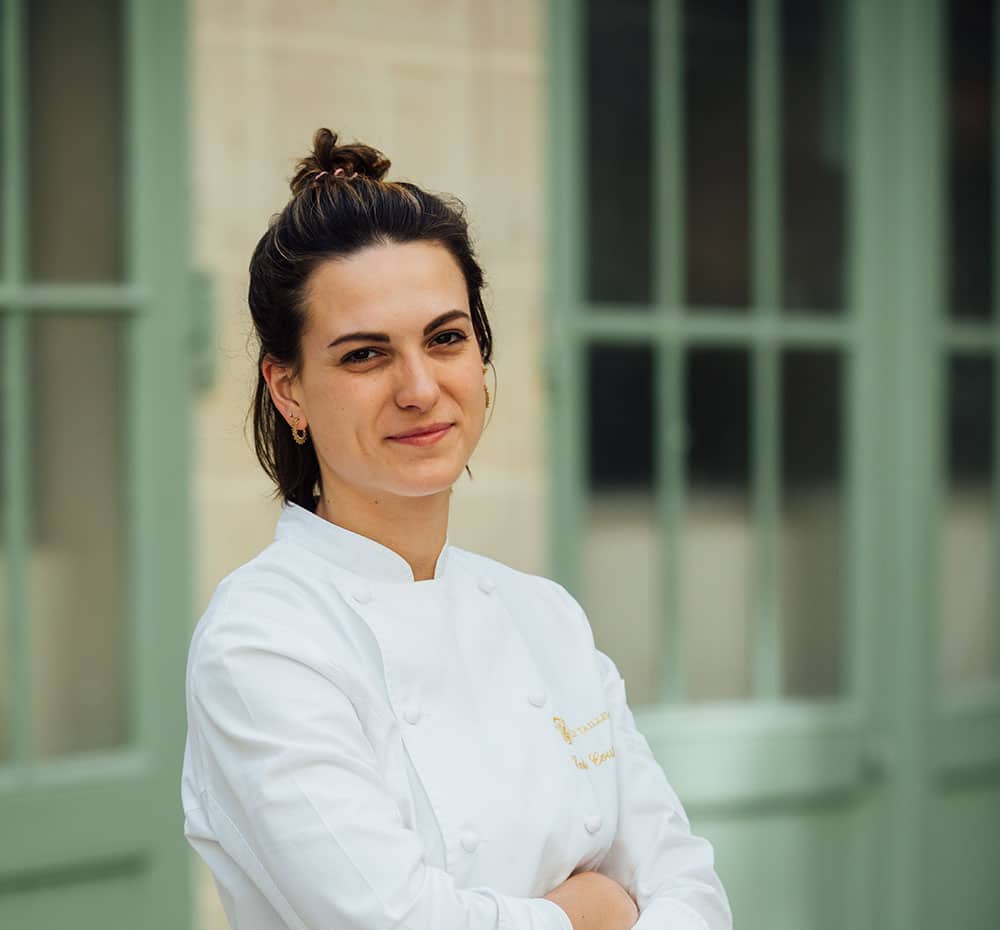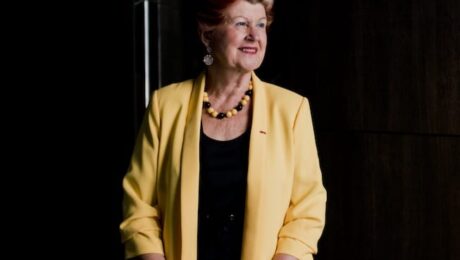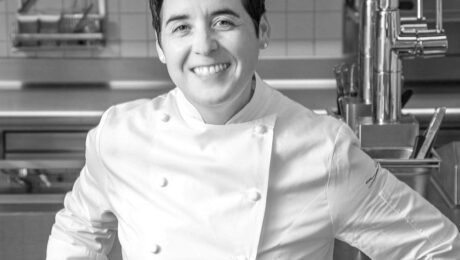Émilie Couturier
« I am very fortunate to be well supported and I enjoy this opportunity every single day. »
Émilie Couturier is a woman who goes fast, who knows how to use her doubts to move forward and achieve her dreams. However at 28 years old, her greatest pride is neither her outstanding career nor her title of pastry chef at Le Taillevent, but her team. A team that she is happy to meet every morning, that she manages without ever raising her voice, that she cherishes. Émilie Couturier will undoubtedly have a long and successful career in the world of gastronomy, and we are delighted to feature her among the prominent women of our Association Les Grandes Tables du Monde.
How did you become a pastry chef?
By chance actually. When I enrolled in a vocational baccalaureat diploma back in my hometown, Le Mans, my intention was to learn the dining room trade, I wanted to be a waitress. But during my first year of school, I realised that I was attracted to kitchen roles. In order to have the most comprehensive training possible, I tried pastry making. It was clear I had found my path, so I did an additional qualification in that same field. I had amazing teachers who were able to pass on their love of the trade and encouraged me to persevere. Moreover when Chef Philippe Mille of Domaine Les Crayères – former student and patron of my school – visited us to taste our creations, my teachers told him about me. And thanks to them, I was able to enter the world of haute gastronomy straight away. Of course, I had done many internships in some very fine establishments, but it was at Domaine Les Crayères, working under Pastry Chef Arthur Fèvre, that I really began to learn about the requirements and rigour of this trade. I had stars in my eyes and on my mind! The luxury and excellence in both the quality of the products and the service opened up endless possibilities for me. The world of pastry making is more relaxed, more delicate and even more precise than that of cooking. These subtle differences are what drew me in 13 years ago and still engage me today.
Émilie Couturier’s background
- 2009: vocational baccalaureat diploma at the Funay-Hélène Boucher secondary school in Le Mans.
Internships in restaurants Le Manoir du Lys, Le Relais Bernard Loiseau and Les Flocons de Sel. - 2012: commis at Château Saint-Martin in Vence under Yannick Franques.
- 2012: additional qualification in pastry making.
- 2013-2016: commis then demi-chef de partie at Domaine Les Crayères in Reims under Chef Philippe Mille and Pastry Chef Arthur Fèvre.
- 2016: chef de partie at Le Clarence and encounter with Chef Giuliano Sperandio.
- 2018: chef de partie at Apicius under Chef Jérôme Chaucesse (Meilleur Ouvrier de France – pastry making and confectionery).
- 2019: sous-chef in charge of pastry at Le Clarence.
- Since 2021: pastry chef at Le Taillevent alongside Chef Giuliano Sperandio.
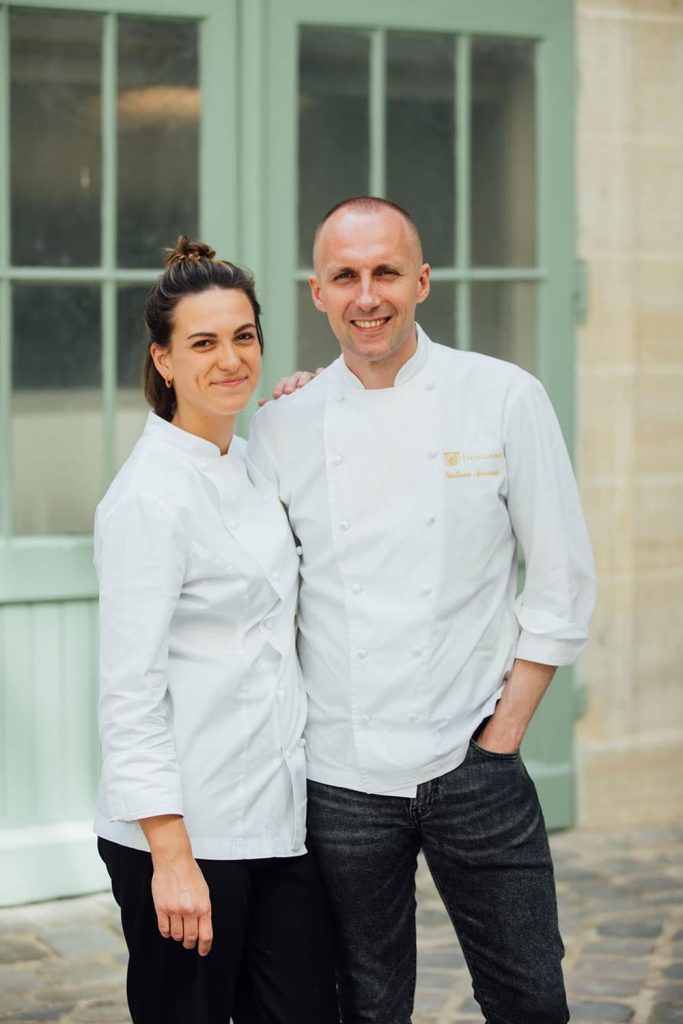
What drives you today?
The people. I have met and keep meeting so many different people: guests, suppliers, Chef Giuliano Sperandio of Le Taillevent of course, and above all, my team, comprised only of women. It is such great pleasure to meet up with them every morning and work together towards the same goals. Giuliano and I recruited Lucine Salquain and Margaux Ladoucette as commis, Justine Giraud as apprentice and Gaïa Trifiletti as demi-chef de partie. I am very proud of what we offer in every service. It’s a hard and stressful job that requires great physical and mental strength. Being driven by passion is essential, but not enough: you need a strong team around you. I am very fortunate to be well supported and I enjoy this opportunity every single day.
How would you describe your collaboration with Chef Giuliano Sperandio?
I met the chef at Clarence. Our relationship was extremely smooth from the start. We understand each other, we support each other, our communication is fluid, and we trust each other blindly. Meeting THE right person is a genuine miracle, and something I wish for everyone. We form a very strong duo.
When he left for Le Taillevent, I couldn’t imagine working without him and so it was only natural that I followed him there. We’ve built everything together. The owners gave Giuliano carte blanche to re-interpret the great classics of French gastronomy with outstanding finesse and a modern touch. And in turn, he trusted me to create a dessert menu that was consistent with his cuisine and flavours. We work hand in hand and exchange ideas all the time. I can tell you for instance about our well-known puff pastry brioche. Giuliano wanted to serve a brioche with his starters. We tried out many, many different things before we finally got it right. It had to be tasty of course, but also aesthetically pleasing. In the end, our perseverance paid off! I just adapted to the chef’s wishes. I really like the directions he suggests and I am able to adjust with ease. Despite the stringent demands and precision inherent to our trade, we always try to leave room for instinct and feeling, and I really like that.
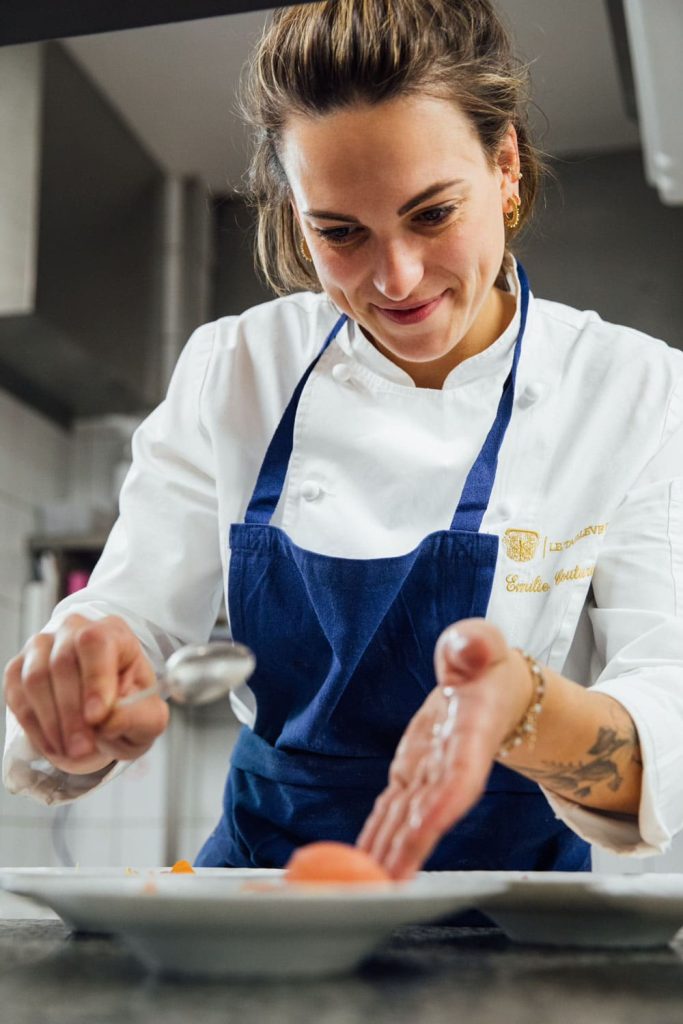
How do you nurture your creativity?
As our lunchtime clientele is largely made up of regulars, we need to change the menu quite often, every fortnight or so. As for the dessert menu, we have five items that change with the seasons. It starts with an idea, my own or shared, we create it, taste it and, most often, the first guest gives us the most valuable indication. We adjust according to their feedback but in general, they like it, so it’s all good!
We operate based on a fixed framework to match the wholesome and generous cuisine of Le Taillevent. The house’s signature dessert is crêpes Suzette served with a small jar of fresh fruit jelly. We typically also have a white soufflé, a dark soufflé, a more indulging and creamy dessert as well as a fruit dessert. I draw inspiration from trendy and seasonal produce, from visuals I see on Pinterest or Instagram, I don’t copy directly but it feeds me ideas. I then discuss it with my team, with Giuliano, and it all comes together quickly. My travels also bring me to try new ingredients, to take risks. I like to experiment a little: incorporating lavender, pistachio, orange blossom or Sicilian cannoli for instance. I love sweets, simplicity, deliciousness and combining textures. I never use colouring agents or chemical products, I try to keep it simple despite the complex techniques involved. I am not afraid to evolve, to change my way of doing things. I used to use gold leaf a lot for instance. I thought it was very classy and elegant, but now I don’t want it anymore. It’s too expensive and not in style anymore. We want to offer classic pastries with a modern touch. I’m naturally very demanding and I like to challenge myself. Repeating a technique, redoing a recipe until I get the perfect dessert is immensely satisfying to me.
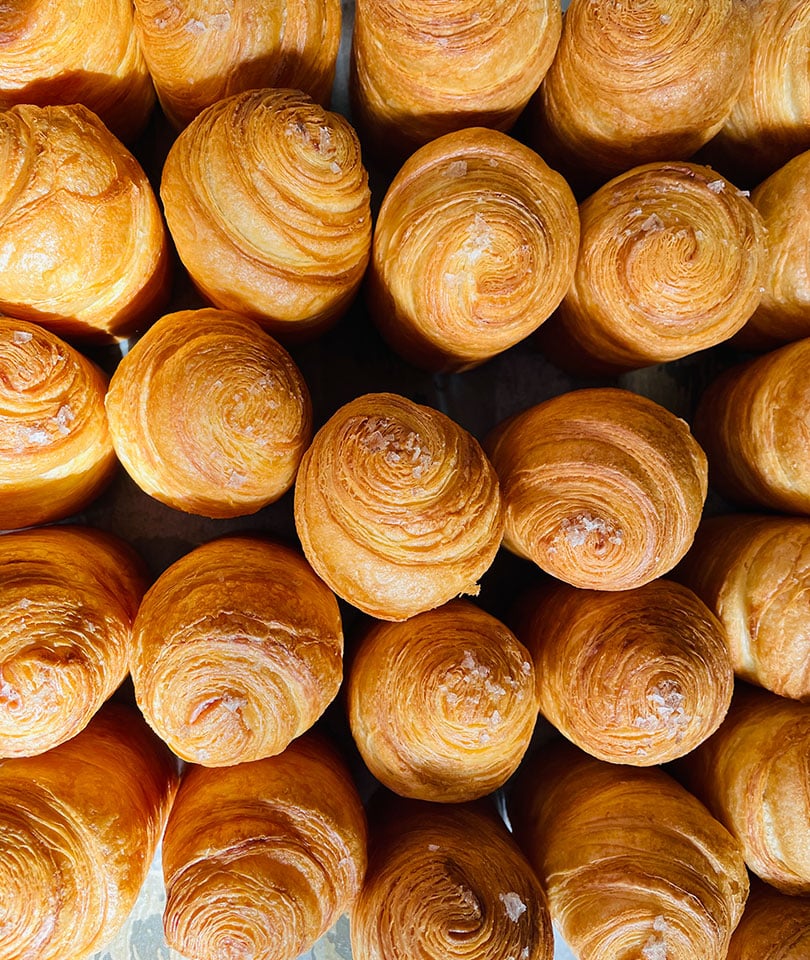
What kind of manager are you?
My wish, our wish with Giuliano, is to work in a calm and serene atmosphere. We want to give our very best at every lunchtime and every evening of the week: we have on average fifty guests per service, from Monday evening to Friday evening. It’s a massive and constant pressure that you need to learn to deal with. Organisation, dialogue and respect are my watchwords. I try to help the women in my team grow, just like others helped me before. I see myself as their professional “mother”. I take the time to explain what I expect as clearly as possible, then I completely leave it up to them and trust them. We have fantastic team cohesion that each of us contributes to. You mustn’t hesitate to point out when something isn’t right, but it’s also important to congratulate for a job well done. I refuse to get angry, even if, like everyone, I can sometimes be annoyed and tired. I’ve always asserted myself without raising my voice. If we respect each other, if we all want to do well, there’s no reason why things should go wrong. Accepting each other’s singularities allows us to work together towards a common goal. For me, recruiting staff will be the biggest challenge for our industry in the future. The new generation is very different from ours, and from those before us. Having a sense of purpose and, above all, good working conditions has become paramount. Respect and listening will be cornerstones in building gastronomy’s future.
 THE MAGAZINE
THE MAGAZINE 